Underwater living: Deep dive site to become £100m research hub
- Published
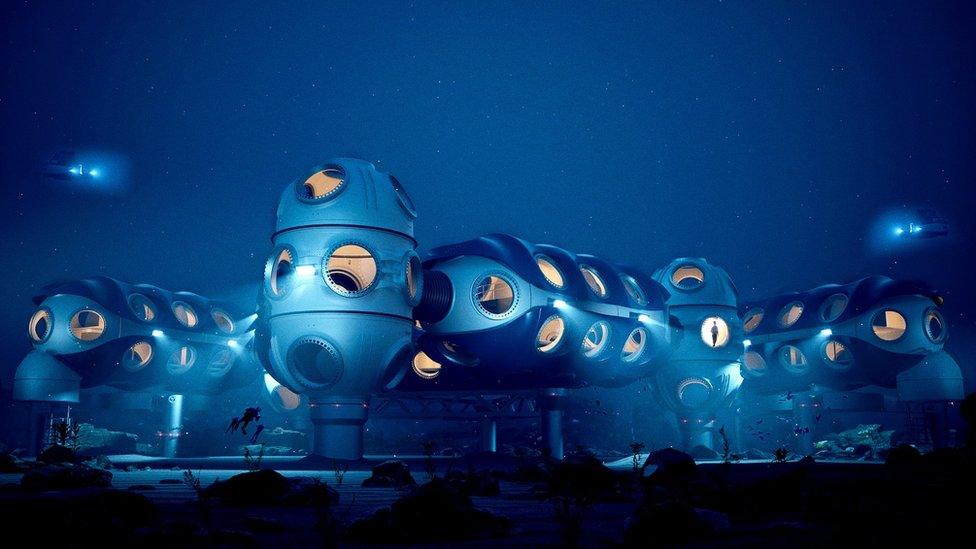
DEEP wants to develop systems that would allow humans to live underwater
A former deep diving site is being repurposed as a research facility to develop technology to allow people to live underwater.
DEEP, an ocean technology and exploration company, is investing £100m in the former National Diving and Activity Centre (NDAC) in Tidenham, Gloucestershire.
It says its aim is for a "permanent human presence" under oceans from 2027.
The quarry will also be used to test out equipment like submersibles.
DEEP said the Tidenham site, which covers 50 acres, will be a "core part of a regional ecosystem in the South West of England" for development exercises for the company and others.
Steve Etherton, DEEP President, said: "We need to preserve the oceans. To do that we need to understand them.
"Through our innovative technology DEEP will enable scientists to operate at depth for extended periods of time and we hope, in some small way, will contribute to our understanding of this life-giving environment."
The company said it initially wants to develop technology that will allow scientists to live underwater at depths of up to 200m for up to 28 days at a time.
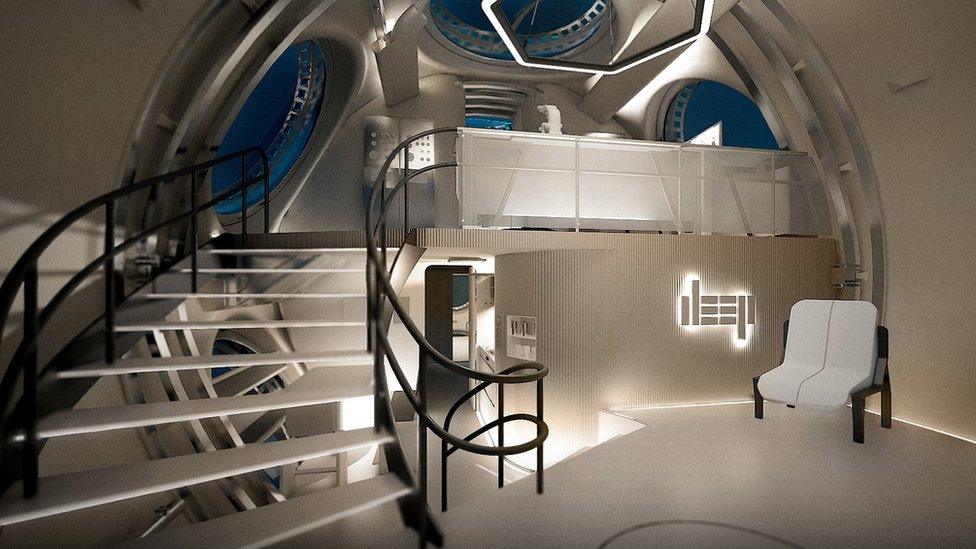
The company says it wants to develop "habitats" which could allow humans to live under the oceans
The Tidenham location was selected because of the "unique cluster of relevant marine-engineering, diving, hyperbaric and submersible expertise, and links with the wider UK commercial and technical diving industry," it added.
When consulted over the plans, Forest of Dean District Council was told DEEP wanted to employ 100 people.
'Just the beginning'
The site had originally opened as the NDAC in 2003 and offered a range of above-ground activities but was best known for its many underwater attractions, installed at a range of depths down to 76m.
The quarry's maximum depth of 80m made the location popular not only with recreational scuba divers but also with technical, free and military divers.
But the site closed permanently last year, following enforced periods of inactivity during the Covid-19 pandemic.
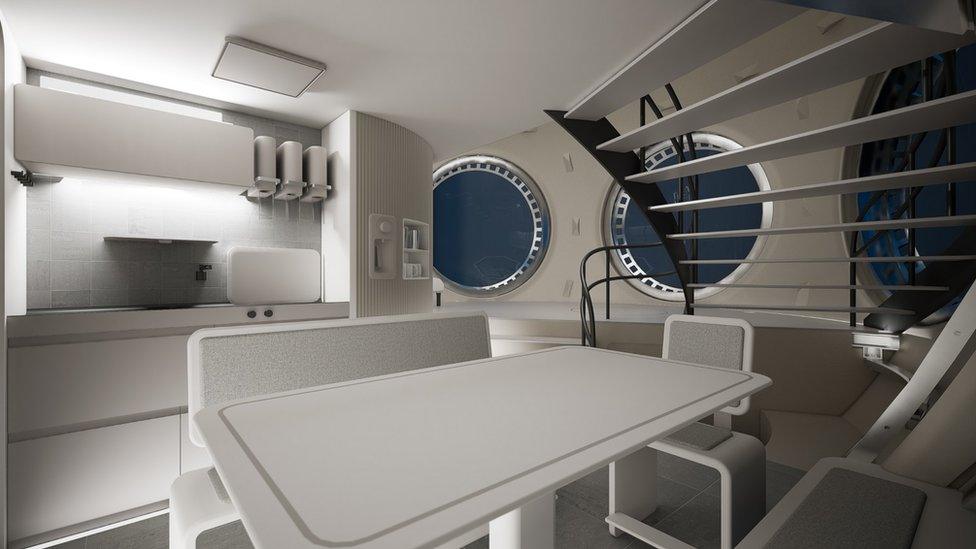
Developing the site at Tidenham is "just the beginning" the company said
DEEP believes it will have established a system of "semi-permanent" underwater human habitats by 2027.
Mike Shackleford, President, Global Services of DEEP said: "DEEP's facilities already house our prototyping and pre-production capabilities as well as advanced material testing infrastructure not found elsewhere in the UK, and this is just the beginning."
The company said it hoped the Tidenham campus would be "fully operational" by 2027.
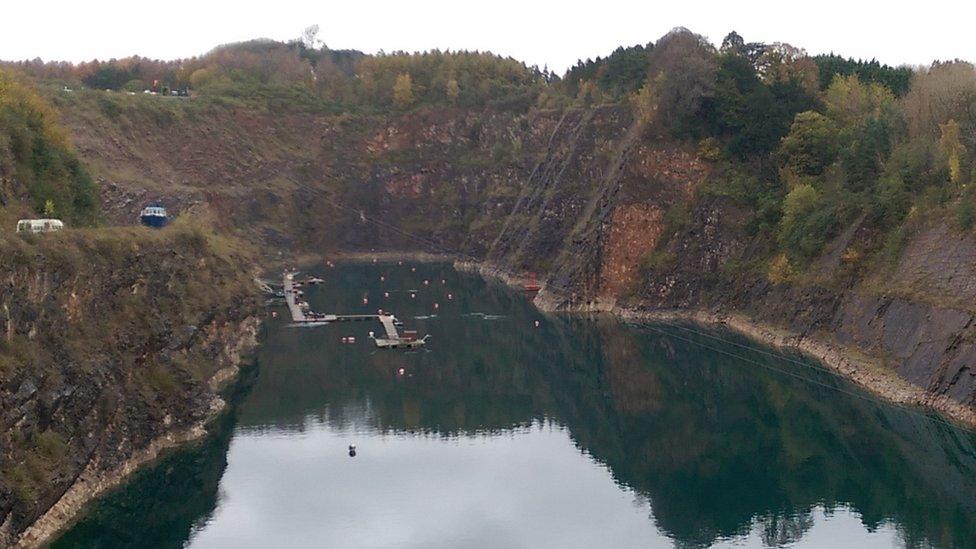
The site at Tidenham was popular with people wanting to test their deep diving skills and experience

Follow BBC West on Facebook, external, Twitter, external and Instagram, external. Send your story ideas to: bristol@bbc.co.uk , external
Related topics
- Published16 May 2023
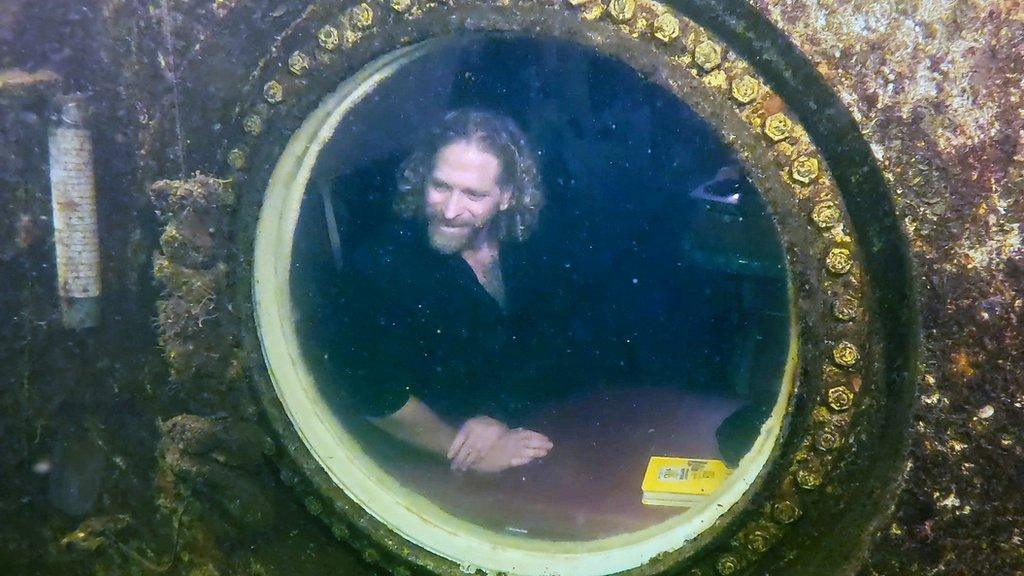
- Published12 April 2019
